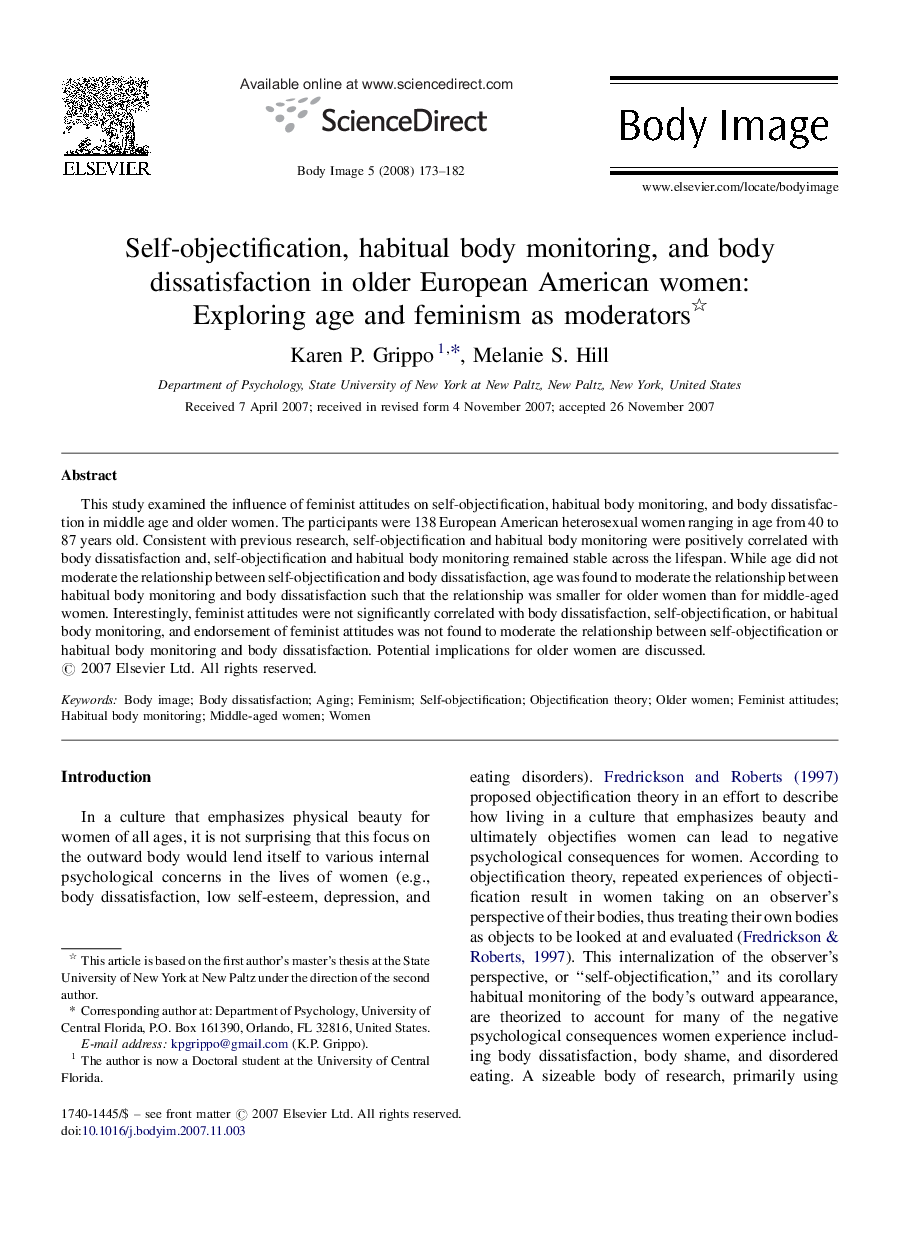This study examined the influence of feminist attitudes on self-objectification, habitual body monitoring, and body dissatisfaction in middle age and older women. The participants were 138 European American heterosexual women ranging in age from 40 to 87 years old. Consistent with previous research, self-objectification and habitual body monitoring were positively correlated with body dissatisfaction and, self-objectification and habitual body monitoring remained stable across the lifespan. While age did not moderate the relationship between self-objectification and body dissatisfaction, age was found to moderate the relationship between habitual body monitoring and body dissatisfaction such that the relationship was smaller for older women than for middle-aged women. Interestingly, feminist attitudes were not significantly correlated with body dissatisfaction, self-objectification, or habitual body monitoring, and endorsement of feminist attitudes was not found to moderate the relationship between self-objectification or habitual body monitoring and body dissatisfaction. Potential implications for older women are discussed.
In a culture that emphasizes physical beauty for women of all ages, it is not surprising that this focus on the outward body would lend itself to various internal psychological concerns in the lives of women (e.g., body dissatisfaction, low self-esteem, depression, and eating disorders). Fredrickson and Roberts (1997) proposed objectification theory in an effort to describe how living in a culture that emphasizes beauty and ultimately objectifies women can lead to negative psychological consequences for women. According to objectification theory, repeated experiences of objectification result in women taking on an observer's perspective of their bodies, thus treating their own bodies as objects to be looked at and evaluated (Fredrickson & Roberts, 1997). This internalization of the observer's perspective, or “self-objectification,” and its corollary habitual monitoring of the body's outward appearance, are theorized to account for many of the negative psychological consequences women experience including body dissatisfaction, body shame, and disordered eating. A sizeable body of research, primarily using college-aged samples, has demonstrated that the more women tend to self-objectify their bodies or habitually monitor their outward appearance, the higher their level of body dissatisfaction (e.g., Noll, 1997; Tiggemann & Lynch, 2001; Tiggemann & Slater, 2001), and eating disorders (Muehlenkamp & Saris-Baglama, 2002; Noll, 1997). In an attempt to find buffers to this process, the current study explores whether age and feminist identity assist women in “relinquish[ing] the internalized observer's perspective” (Fredrickson & Roberts, 1997, p. 195).


